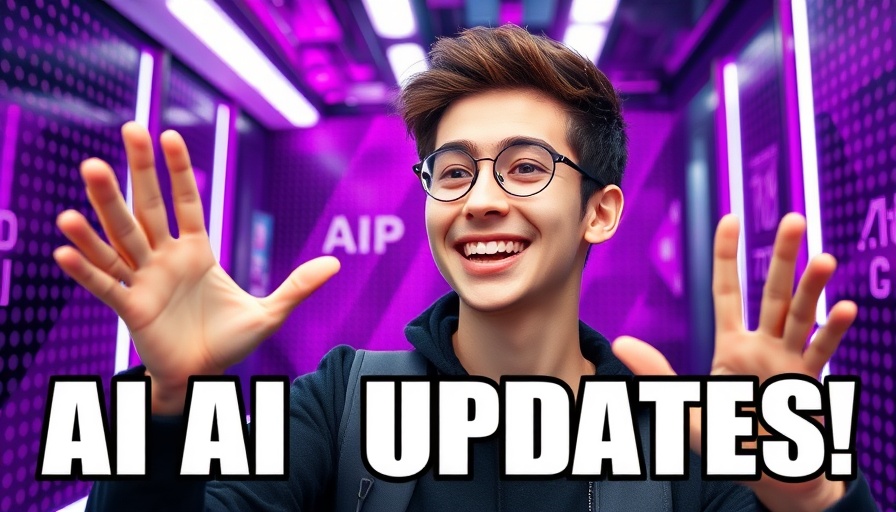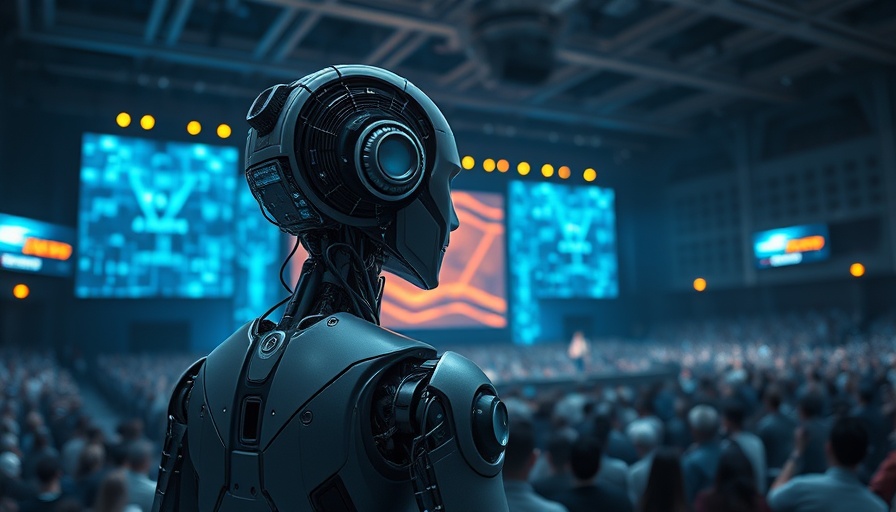
Revolutionizing Creativity: The Impact of OpenAI's GPT-4 Omni
In the rapidly evolving landscape of artificial intelligence, OpenAI's latest feature, GPT-4 Omni, has introduced groundbreaking capabilities, particularly in image generation. Unlike previous models that relied primarily on diffusion-based techniques, GPT-4 Omni offers a native image generation functionality that integrates audio, text, and now images into one cohesive AI experience. This multi-modal approach not only enhances the model's photorealistic output but also allows for sophisticated image transformations, a feature that could significantly disrupt content creation in various fields.
In AI News: Native Image Generation, Gemini 2.5, and Groundbreaking Medical AI!, the discussion dives into the latest advancements in AI, exploring key insights that sparked deeper analysis on our end.
Community Use Cases: The Exciting World of AI Art
The community has embraced the novel features of GPT-4 Omni, using it to create stunning visual pieces that transform commonplace images into works reminiscent of renowned animation studios. Notably, an entire Lord of the Rings trailer was reimagined in a Studio Ghibli style, sparking both admiration and debate over the role AI plays in creative expression. Such projects highlight AI’s potential to democratize artistry, allowing passionate creators without formal training to experiment and showcase their talents.
The Rise of Gemini 2.5: A New Player in AI Coding
Following closely on the heels of OpenAI’s innovations, Google has released the Gemini 2.5 model, which boasts significant improvements in coding proficiency. Compared to its predecessor, the Claude 3.7, Gemini 2.5 has reportedly surpassed expectations by handling complex coding tasks with ease. Users have shared their experiences, with many claiming the model resolves coding issues that previously required extensive manual adjustments. For business owners and tech enthusiasts, this represents a dramatic leap forward, providing tools that could enhance productivity and streamline software development processes.
AI's Potential in Healthcare: A Game Changer for Diagnostics
A particularly heartening development discussed in recent weeks is an AI initiative detecting endometrial cancer with over 99% accuracy. This advancement not only surpasses human capabilities by a significant margin but also underscores AI's potential to revolutionize healthcare. With more precise and faster diagnostic tools, AI stands to alleviate the burden on healthcare systems and improve patient outcomes dramatically.
Overcoming Challenges in the AI Landscape
While innovations like GPT-4 Omni and Gemini 2.5 represent remarkable progress, challenges persist. For instance, the issue of hallucination in generated images remains a concern, as seen with the Grock model's blurry outputs. Furthermore, the ethical ramifications of such powerful technologies must be navigated carefully. Ensuring data privacy, addressing biases in generated content, and regulating the use of AI for malicious purposes are critical discussions that stakeholders across industries must engage in.
Get Started with AI Today!
The advancements in AI technology from OpenAI's native image generation to Google's Gemini 2.5 create unique opportunities for businesses looking to stay ahead in their industries. As AI becomes more integrated into creative fields, healthcare, and software development, now is the time to explore how these tools can enhance productivity and innovation. Whether you're an entrepreneur, a content creator, or a healthcare practitioner, understanding and leveraging AI could position you for success in the changing landscape. GET STARTED WITH AI TODAY.
 Add Row
Add Row  Add
Add 




Write A Comment